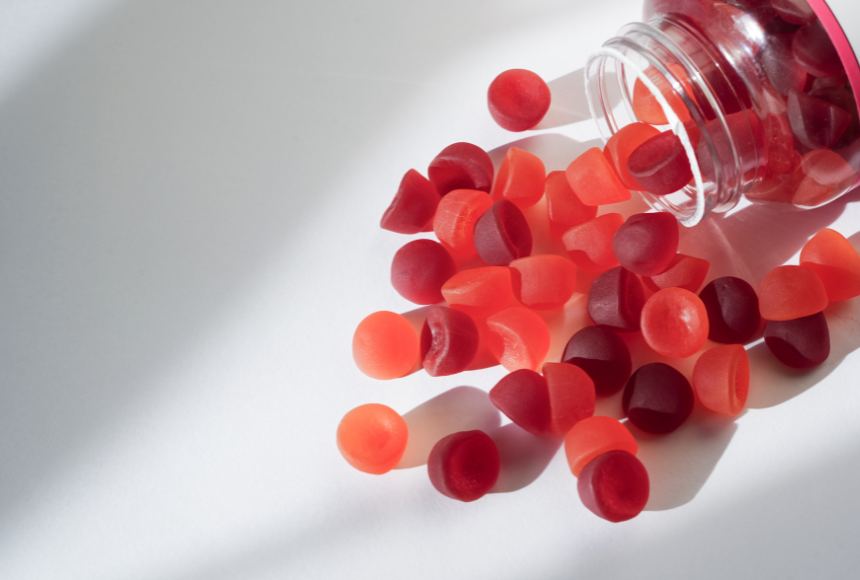Top 9 Healthy Foods for Kids
by: Tiny Sprouts Foods
Children go through rapid development of their brain and body from the day they are born. A variety of nutritious foods are necessary to support that growth and can set children up for a life of great health and mental wellbeing. So, what are the best foods to support this rapid growth? Our top picks are listed below, but let's first talk about what a "healthy food" is and some more benefits of a healthy diet.
Checklist for healthy & nutritious foods
- Nutrient dense; meaning its packed with vitamins and minerals (calcium, iron, B-vitamins, etc.)
- Does not contain or is low in saturated fats, trans fats and salts
- Usually a good source of fiber
- Is not processed or full of artificial fillers
- Does not contain added sugars or other additives
Almost any whole-form, fresh, unprocessed food is healthy; think colorful fruits, vegetables, plain yogurts, etc., as they are full of healthy nutrients for kids and adults. There are many other healthy foods like nuts, seeds, whole-grains, beans, etc., that equally offer important nutrients. Including variety is key. We encourage you to read nutrition labels and ingredient statements on the foods you purchase for your little ones to ensure they are nutrient dense and not full of any unnecessary junk that could stagger growth or encourage poor eating habits as they age. Avoid any product that contains additives that you do not understand. For example, sodium benzoate is a common additive in sodas, condiments, and even fruit juices (many of which are falsely advertised as "healthy"). Studies have shown that foods/beverages containing this additive increased hyperactivity in toddlers, increased symptoms of ADHD1,2 and even is associated with cancer as it can convert into benzene which is a known carcinogen3. Scary stuff! Read and understand food labels for the betterment of your entire family.

Benefits of healthy foods
- They give little bodies the opportunity to grow & develop to their full potential.
- They provide growing brains with the nutrients required to form the right connections to develop cognitive functions & support mental and emotional wellbeing4.
- They can reduce the risk of a multitude of diseases5 from cancers, heart disease, diabetes etc.
- They stabilize mood, and can improve sleep at night & energy levels in the day.
- They can treat anxiety6, reduce symptoms of ADHD7 and depression.
Top 9 healthy foods for kids
There are loads of healthy foods out there! This means you have endless options to satisfy even the pickiest eater with something that is good for them. The foods listed below are our favorites as they over-index on their health benefits for young children so even in small quantities they add many nutrients into your little ones diet. Our top healthy foods are:

Seeds are the lesser known, yet AMAZING addition to your little one’s diet. Even in small quantities, they provide your child with tons of nutrients including proteins, omega-3 fatty acids (important for brain development), and almost all essential vitamins & minerals. Most seeds contain fiber which helps keep your littles ones regular. And they are an easy addition to almost anything - simply ‘sprinkle’ or mix them into any food for an instant nutritional boost. Keep in mind that some full seeds & nuts can be a choking hazard for kids under 4 years of age, so ensure they are milled or crushed before serving. Milled seeds are also more easily digested and absorbed by the body.
TOP TIP: At Tiny Sprouts Foods, we have created a full range of seeds specially designed for children as young as 6 months. Learn about them here: https://www.tinysproutsfoods.com. We share some great tips and recipes on how to use these seeds as ‘supersrpinkles’ in all of your little ones favorite foods!
Do you have any other top foods to share that are nutrient dense and a great addition to your Little One’s diet? We would love to hear your suggestions and tips! For some great and easy recipes ideas which use the foods listed above, check out www.tinysproutsfoods.com/recipes.

Tiny Sprouts Foods is a children's nutrition company focused on producing convenient, nutrient-rich products that offer functional health benefits to the developing child. They are committed to making every bite count through their debut range of Organic Superseed BoostersTM, which can easily be added to any food to boost nutritional content, support a child’s daily health needs, and give parents the peace of mind they deserve. Learn more at https://www.tinysproutsfoods.com.
Disclaimer: The information contained in this blog is based on the experience of the author and science-based research. It is not intended to replace medical advice or diagnosis from a physician or other medical provider. This blog is not intended as a substitute for a consultation with a physician or other healthcare provider. The author is not responsible for any adverse effects or consequences resulting from the use of any suggestions discussed in this blog. It is important to talk to your doctor or your child’s pediatrician prior to starting any new medications or supplements.
Sources:
- https://www.ncbi.nlm.nih.gov/pmc/articles/PMC3441937/
- https://www.health.harvard.edu/newsletter_article/Diet-and-attention-deficit-hyperactivity-disorder
- https://www.fda.gov/food/chemical-contaminants-food/questions-and-answers-occurrence-benzene-soft-drinks-and-other-beverages
- https://www.ncbi.nlm.nih.gov/pmc/articles/PMC2805706/
- https://www.nih.gov/news-events/nih-research-matters/how-dietary-factors-influence-disease-risk
- https://www.health.harvard.edu/blog/nutritional-strategies-to-ease-anxiety-201604139441
- https://pubmed.ncbi.nlm.nih.gov/24934907/
- https://pediatrics.aappublications.org/content/140/1/e20163459#:~:text=Observational%20studies%20have%20linked%20eggs,doubled%20the%20odds%20of%20stunting
- https://www.health.harvard.edu/blog/brain-food-children-nutrition-2018012313168
- https://www.ncbi.nlm.nih.gov/pmc/articles/PMC3738999/#:~:text=The%20long%20chain%20omega%2D3,optimal%20visual%20and%20cognitive%20development
- https://www.ncbi.nlm.nih.gov/pmc/articles/PMC4466762/












